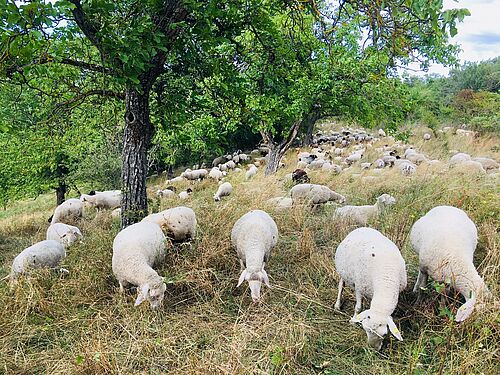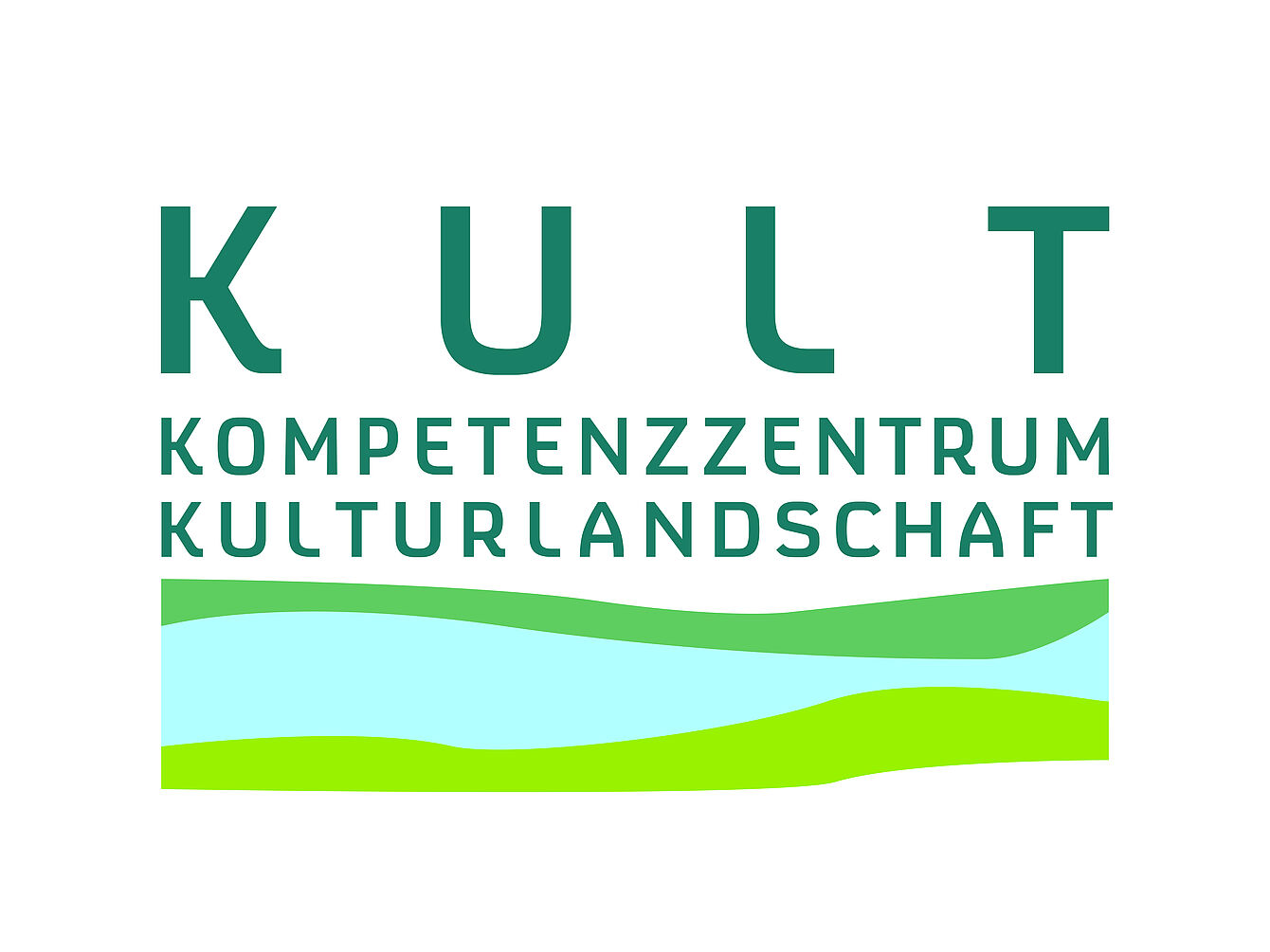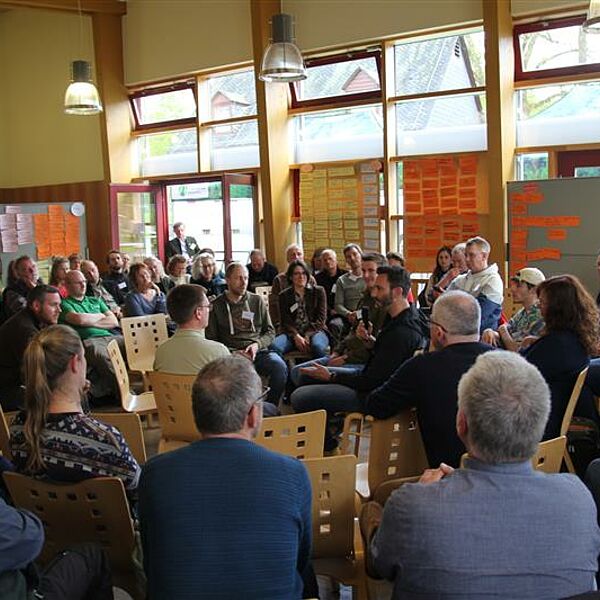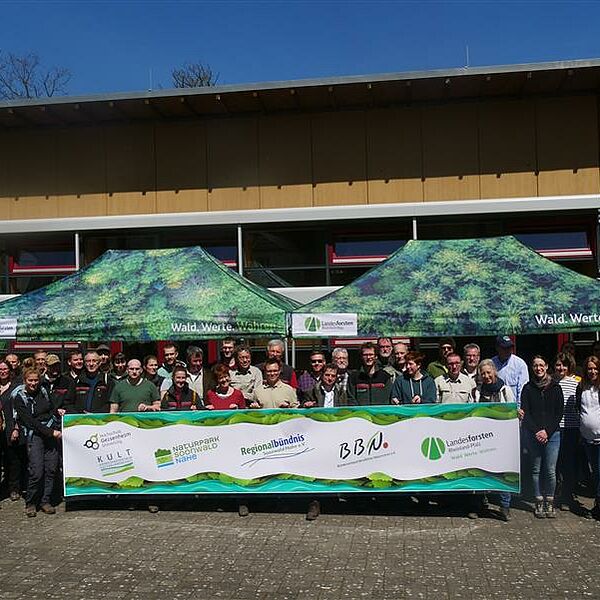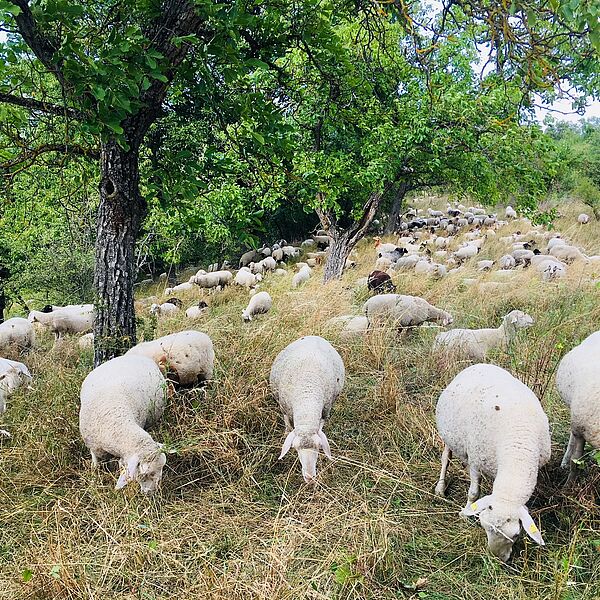How do natural structures affect the beauty and recreational factor of wine-growing areas? To answer this question, Maximilian Tafel, Kristýna Kohoutková and Anne Kleih collected data for their eye-tracking study on February 13-17, 2023. Within the scope of the study, the eye movements of 32 subjects were tracked while they viewed nine images of wine-growing areas with varying levels of natural structures. The eye-tracking technology allows the researchers to see if the subjects focus their attention on the vineyards or the natural structures. To identify the influence on the individual’s perception of beauty and recreational value, the study was coupled with an online survey asking respondents to rate the beauty and relaxing effect of each landscape. The data is currently being analyzed and we are looking forward to the results.
science.practice.discourse.
Today's modern age is causing great changes in cultural landscapes. The use of landscapes through intensification of land use (agriculture, forestry, settlements, energy generation etc.) leads to ever more profound changes in these high-quality cultural landscapes. Characteristics such as historical elements and diversity, which determine value are irretrievably lost.
The Competence Centre Cultural Landscape works on these current social challenges of sustainable development of the cultural landscape in a cooperative network. To this end, we organise specialist events and further training and thus promote the development of professional standards.
Upcoming Events
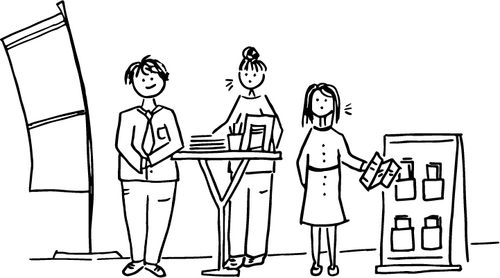
Here you can find the current events of the CULT:
Agrobiodiversity - Conservation of genetic diversity as a joint task of agriculture and societyon October 21 and 22, 2024 at Biebrich Castle (Blue Salon) in Wiesbaden. Registration on the BHU website: https://bhu.de/veranstaltungen/agrobiodiversitaet-2024/

The future of the cultural landscape in Rheingau and Taunus in the context of land use on 14.11.2024 at 13:30 - 18:00 at Hochschule Geisenheim University, Lecture Hall 10, Villa Monrepos. Registration here: veranstaltungen.hs-geisenheim.de/event/zukunft-kulturlandschaft
Safeguarding and developing the cultural landscape of the Rheingau and Taunus is a core task and a matter close to the heart of the community foundation Unser Land, the Competence Center Cultural Landscape (KULT) and the knowledge transfer project GeisTreich of Geisenheim University, which is why we want to bring together all those interested in this topic in the region once a year in future, discuss current issues together and contribute to further training.
Registration and further information here: veranstaltungen.hs-geisenheim.de/event/zukunft-kulturlandschaft
Conserving wild plants for food and agriculture (WEL) in genetic conservation areas - basics of a new strategy in Germany 28.11.2024, 10 a.m. - 4 p.m. at Villa Monrepos, Rüdesheimer Str. 5, Geisenheim
The conservation of wild plant species of special importance for food and agriculture (WEL) is a common concern of land users and nature conservation. By signing the International Seed Treaty and the Convention on Biological Diversity, Germany committed itself to establishing a network of protected areas for this purpose. Results of the model and demonstration project "In-situ conservation of wild plants for food and agriculture using umbrella species (IsWEL)" for the implementation of this requirement will be presented at this conference on 28.11.2024 and perspectives of genetic conservation areas will be developed as part of a possible strategy for the conservation of WEL in Germany.
The program and registration can be found here: netzwerk-wildsellerie.julius-kuehn.de/dokumente/upload/cecfa_WEL-Tagung_28.11.24_Flyer-k.pdf
Contact
If you have any questions or if you would like to cooperate please write an email at kult(at)hs-gm.de
Events
CULT Download Area
In the CULT Download Area you can download files from the CULT-network. These are sorted by date and, if necessary, by the respective event. However, some files are not intended for publication. To download them you need a password. You will receive this by sending us an e-mail.

